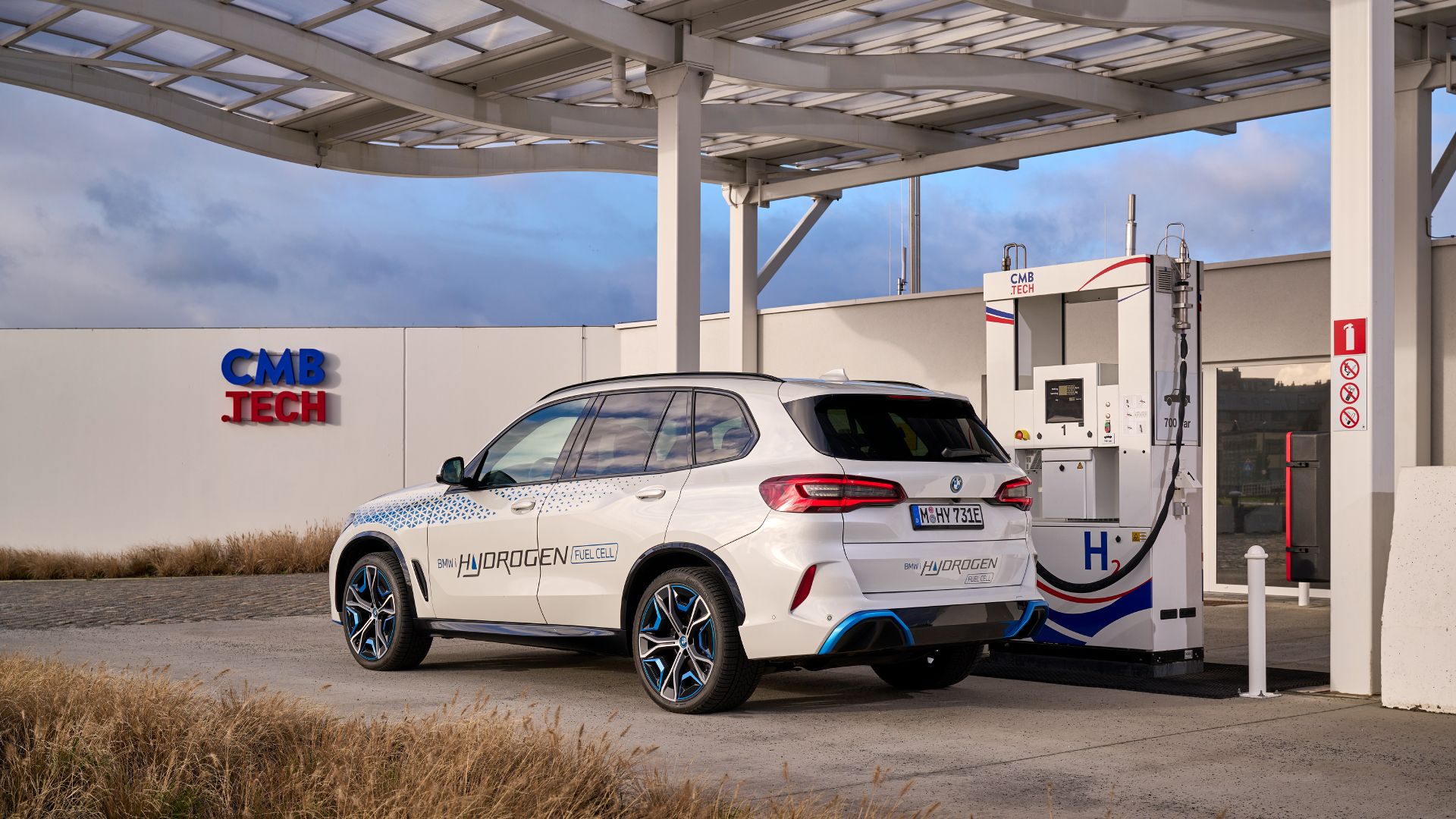
The future of mobility is rapidly approaching, promising fast refueling, prioritized performance, and zero emissions. Hydrogen-powered vehicles are gaining popularity, and BMW is one of the automakers at the forefront of this movement.
The BMW iX5 Hydrogen is scheduled to be one of three hydrogen-powered vehicles released by BMW dealerships in 2024. This sustainable SUV concept aims to revolutionize electric mobility while offering exceptional performance. As companies, cities, and countries strive to achieve net-zero carbon emissions in the coming decades, a variety of renewable energy sources are required. Hydrogen plays a crucial role in this future.
About 100 BMW iX5 Hydrogen test models have been produced and rolled out in recent months to showcase the brand’s vision for the future. The expected features of the iX5 suggest that hydrogen-powered vehicles may offer advantages that even current electric vehicles, including BMW’s EV lineup, cannot provide.
The information in this article is based on sources like BMW, Car and Driver, Global Market Insights, SAE, and the International Energy Agency.
The BMW iX5 Hydrogen Refuels In Just Four Minutes
One notable advantage of hydrogen vehicles is their quick refueling time. Hydrogen refueling typically takes only three to five minutes, and the BMW iX5 Hydrogen promises a four-minute refueling time—similar to or even faster than refueling a gas-powered car at a gas pump.
However, the limited availability of hydrogen refueling stations remains a major challenge. Unlike gas stations or electric charging stations, hydrogen fueling stations are still scarce.
Over 400 Horses At Your Disposal
In addition to its fast refueling time, the iX5 Hydrogen boasts impressive performance. It combines fifth-generation fuel cell technology with an electric motor, providing 401 horsepower and 524 pound-feet of torque.
The BMW iX5 Hydrogen can accelerate from 0 to 60 mph in just six seconds and has a top speed of 115 mph. The vehicle is equipped with a 400-volt battery located above its hydrogen-powered motor. In terms of range, it offers approximately 313 miles, which is comparable to top-ranked electric vehicles like the Tesla Model Y and the Rivian R1T.
BMW iX5 Hydrogen Technical Specifications
|
Layout |
Dual hydrogen fuel cells with a single electric motor |
|
Horsepower |
401 horsepower |
|
Torque |
524 pound-feet |
|
Range |
313 miles |
|
0-60 MPH |
6.0 seconds |
|
Top Speed |
115 MPH |
|
Price |
TBA |
(Specs sourced from BMW and Car and Driver)
Hydrogen’s availability and infrastructure play a significant role in realizing a carbon-neutral future. The BMW iX5 Hydrogen’s quick refueling, impressive range, and smooth driving experience make it a compelling alternative for fans of internal combustion engines.
BMW has committed to achieving carbon-neutral status for its brand by 2050 at the latest. As deadlines for all-electric and zero-emissions fleets approach, various technological innovations and fuel sources are necessary to achieve these environmentally conscious goals.
BMW Is Committed To Hydrogen Tech
The BMW iX5 Hydrogen is part of the brand’s collaboration with the United Nations’ “Race To Zero” initiative, which includes responsible sourcing of materials. Hydrogen vehicles require fewer raw materials in production and engineering compared to electric vehicles.
While the percentage of electric vehicles on the road has increased significantly in recent years, they still account for only 14% of total vehicles as of 2022, according to the International Energy Agency. This percentage is expected to increase by 4% by the end of 2023. Therefore, there is still a large market share dominated by high-emission gas-powered vehicles. Hydrogen technology has the potential to fill this gap.
As investors recognize the potential, the availability of hydrogen technology is expected to grow significantly. Global Market Insights projects that the current market value of the hydrogen vehicle sector, currently at $2.8 billion, will reach $33.2 billion by 2032.
The iX5 Takes Inspiration From BMW’s EV and Gas-Powered Lineup
The BMW iX5 Hydrogen draws inspiration from the electric iX while also comparing favorably to both BMW’s electric and gas-powered vehicle lineup. For instance, the iX5 is expected to outperform some of BMW’s all-electric vehicles in terms of specifications. The BMW i4 has a range of 307 miles, starting at 227 miles, and the i5 offers a range of only 295 miles.
Moreover, the iX5 Hydrogen shares similarities with the all-electric BMW iX SUV. While offering similar torque, the iX has more power with 516 horsepower and quicker acceleration of two seconds. However, the iX5 has a slightly better range at 311 miles and a top speed of 124 mph. Additionally, the iX5 Hydrogen has the advantage of significantly shorter charging time compared to the iX, which requires 11 hours to charge using a level two charger.
Not Mighty Fast, But the iX5 Is No Slouch Either
The iX5 Hydrogen is also competitive with gas-powered BMW models. For example, the BMW X1 has a similar 0-60 mph acceleration time of 6.2 seconds, but it has a combined city and highway fuel economy of 23 MPG. The estimated horsepower of the 2024 X1 is lower than that of the iX5 at about 312 horsepower.
BMW strikes a balance with the iX5 by leveraging its existing models. Rather than creating a completely new product, BMW builds on what it does best, resulting in the iX5 Hydrogen outperforming both electric and gas models. This hydrogen-powered vehicle could convince traditionalists of internal combustion engines to embrace eco-friendly alternatives.
